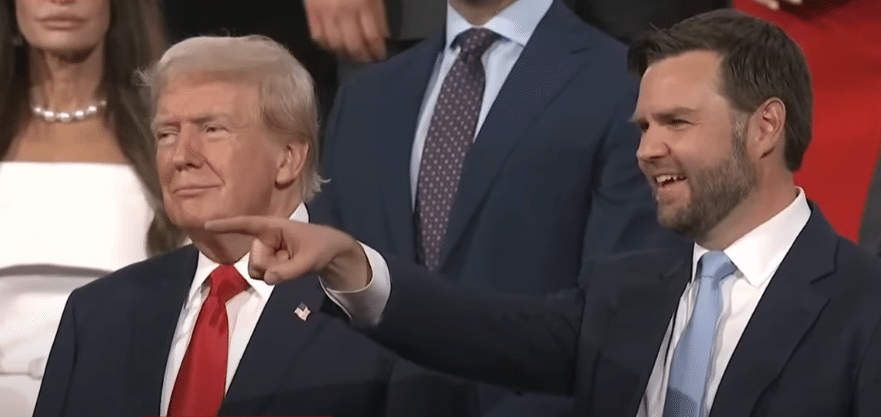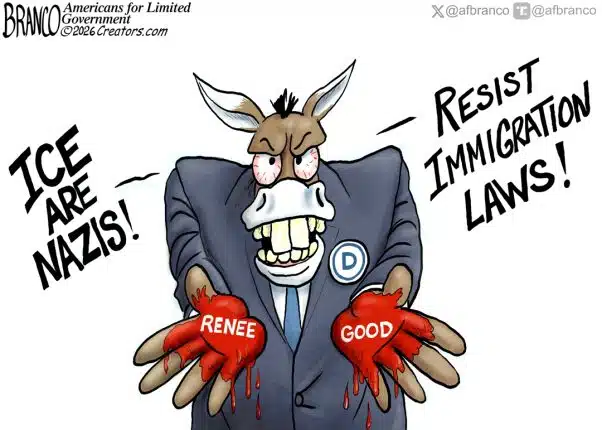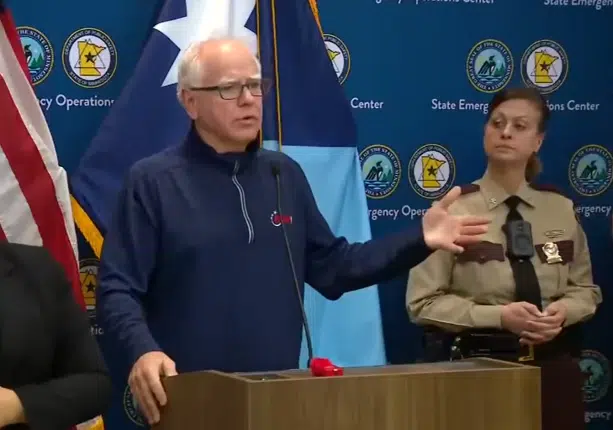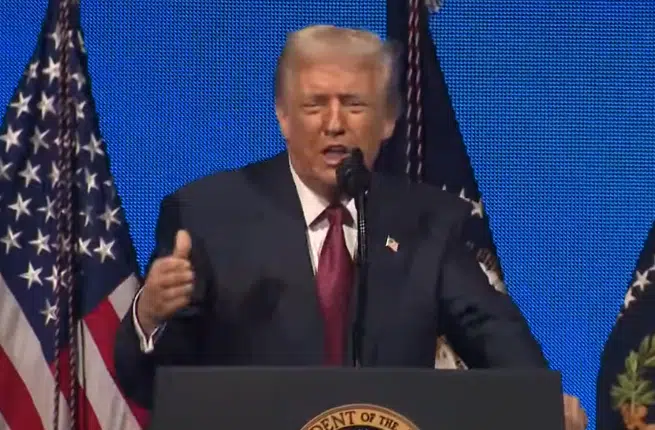
While the 2026 midterm elections in fifteen months will continue to reshape the political landscape, early polling is also gauging voter interest in the 2028 presidential election, and Vice President J.D. Vance is currently holding a narrow lead against three Democratic rivals. Vance’s national popularity is also on the rise, and sits at a net favorable rating among Millennials, who will become one of the largest age cohorts in the country by 2028.
An Emerson College poll released July 25 finds J.D. Vance beats three top contenders in a hypothetical head-to head matchup for president in 2028. Vice President Vance beats former Secretary of Transportation Pete Buttigieg by one percentage point, 44 percent to 43 percent with 13 percent undecided. Vance beats California Governor Gavin Newsom by three points, 45 percent to 42 percent, with thirteen percent undecided, and against Congresswoman Alexandria Ocasio-Cortez, Vance leads by three points, 44 percent to 41 percent with 15 percent undecided according to Emerson.
While Vance’s net approval rating remains underwater nationally, with the latest YouGov survey showing 37.7 percent of Americans approve of Vance while 43.6 disapprove, his approval rating is on the rise. In July of 2024, 28.3 percent of voters approved of Vance, indicating his approval has risen around nine points over the past year.
What is also notable is Vance’s approval rating among younger voters, with YouGov data showing Vance sits at a net positive approval rating of 4.6 points among Millennials, with 40.8 percent approving and 36.2 percent disapproving. This is in comparison to Vance’s approval rating among Gen X voters, where he is underwater by fifteen points. Millennials as well as Gen Z (voters 18-30) will play a pivotal role in the next series of election cycles. According to Brookings estimates Millennials and Gen Z (or plurals as Brookings refers to them) combined will make up an estimated 54 percent of the electorate by 2028.
Vance’s narrow lead — and improving public profile particularly among young voters — are good news for conservatives if he chooses to run for president in 2028. As for how he is likely to fare in the GOP primaries, a lot can change in the next three years, but recent polls show Vance leads all other GOP contenders by a significant margin.
According to an Echelon Insights poll from July 10-14, Vance amasses a full 42 percent of the vote in a multiple-way race that includes 15 possible GOP candidates. Florida Governor Ron DeSantis comes in second place with nine percent of the vote, and Secretary of State Marco Rubio comes in third with seven percent, according to the survey. Former U.N. Ambassador Nikki Haley comes in fourth, with six percent of the vote, and businessman Vivek Ramaswamy comes in fifth, with four percent.
While Vance is the clear frontrunner for 2028, he does perform better among certain demographics, including young people, college educated Republicans, and middle-income Americans. Vance leads the other contenders with older voters, those without a college degree, lower income and upper income voters, but he performs lower with these groups than other demographics.
Emerson’s poll shows Vance earns 46 percent of the vote among voters age 18-34 (four points above his overall average), 48 percent of the vote among college graduates (six points above his overall average), and 47 percent of the vote among middle-income earners (five points above his overall average). However, among voters 35-49 Vance earns 37 percent of the vote (five points below is overall average), among those with a high school education or less he earns 40 percent of the vote (two points below his overall average) and among voters earning less than $30,000 a year or more than $125,000 a year he earns 41 percent of the vote and 42 percent respectively.
Vance’s popularity among college-educated Americans is an early political shift Americans for Limited Government Foundation covered earlier this month. Early data shows that while non-college voters still lean toward the GOP and make up a sizeable share of the electorate, college-educated voters are also swinging back toward the Republican Party, perhaps driven away from Democrats by their lack of action on crime, the border, and inflation.
While the next presidential election is a long distance away, Vice President Vance is already maintaining a narrow national lead against Democratic contenders, and a strong lead in GOP primary polls. He is also leading among groups the GOP is beginning to show strength with, including young, middle-income, and educated voters who have been shifting back toward the Republican Party since the 2024 election.
Manzanita Miller is the senior political analyst at Americans for Limited Government Foundation.






